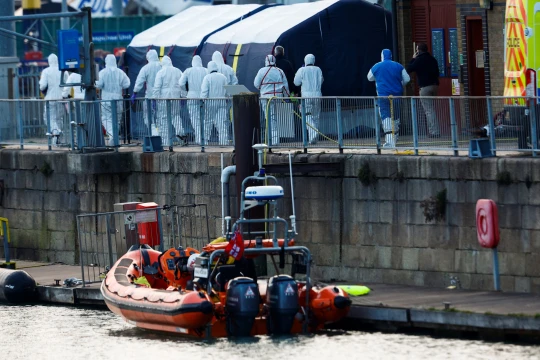
A teenager has been charged with people smuggling after four people died when a small boat crossing the English Channel capsized.
Ibrahima Bah, 19, of no fixed address, has been charged with facilitating attempted illegal entry into the UK, Kent Police said today.
Bah has been remanded in custody and will stand before Folkestone Magistrates’ Court next Monday.
The Crown Prosecution Service authorised the charge against Bah following the arrest of a man on Friday in connection to the tragedy on Wednesday.
Wrenching video footage showed a fishing crew aboard the Arcturus pulling people precariously clinging to rope on the side of a partially deflated dinghy.
Further clips showed panicked people struggling in the frigid and turbulent waters of the Channel as rescue lifeboats hurry towards them.
At around 2am, the Arcturus made a tight turn in the Channel between Dungeness and the French port Boulogne-sur-Mer, according to vessel tracking data.
Ben Squires, who owns the boat, told ITV News that his crew was fishing when they spotted a sinking ‘rigid’ boat.
‘It looks to be that the bottom of the rigid inflatable boat with the migrants on had fallen away – so you had all these people in the water, in cold conditions,’ he said.
‘We’re talking about human beings and people’s lives, and lives have been lost today,’ Squires added, but I’m really glad that we managed to save 31.’
Following a rescue operation involving the Royal Navy, French navy, Coastguard, RNLI lifeboats, ambulance service and police, 39 people were saved.
Officers are continuing to identify those who died and locate the next of kin.
The number of people attempting to make the sometimes fatal journey across the Channel has risen in recent years.
Refugee groups point to a lack of safe, legal routes into the UK as among the reasons why this is happening.
Wintry weather has also swept the UK, bringing the temperature in the Channel to the negative single-digits, adding to already dangerous weather.
And people making the journey have their reasons. Many are fleeing from war and persecution, with six in 10 likely to be granted asylum as a result, researchers found.





















